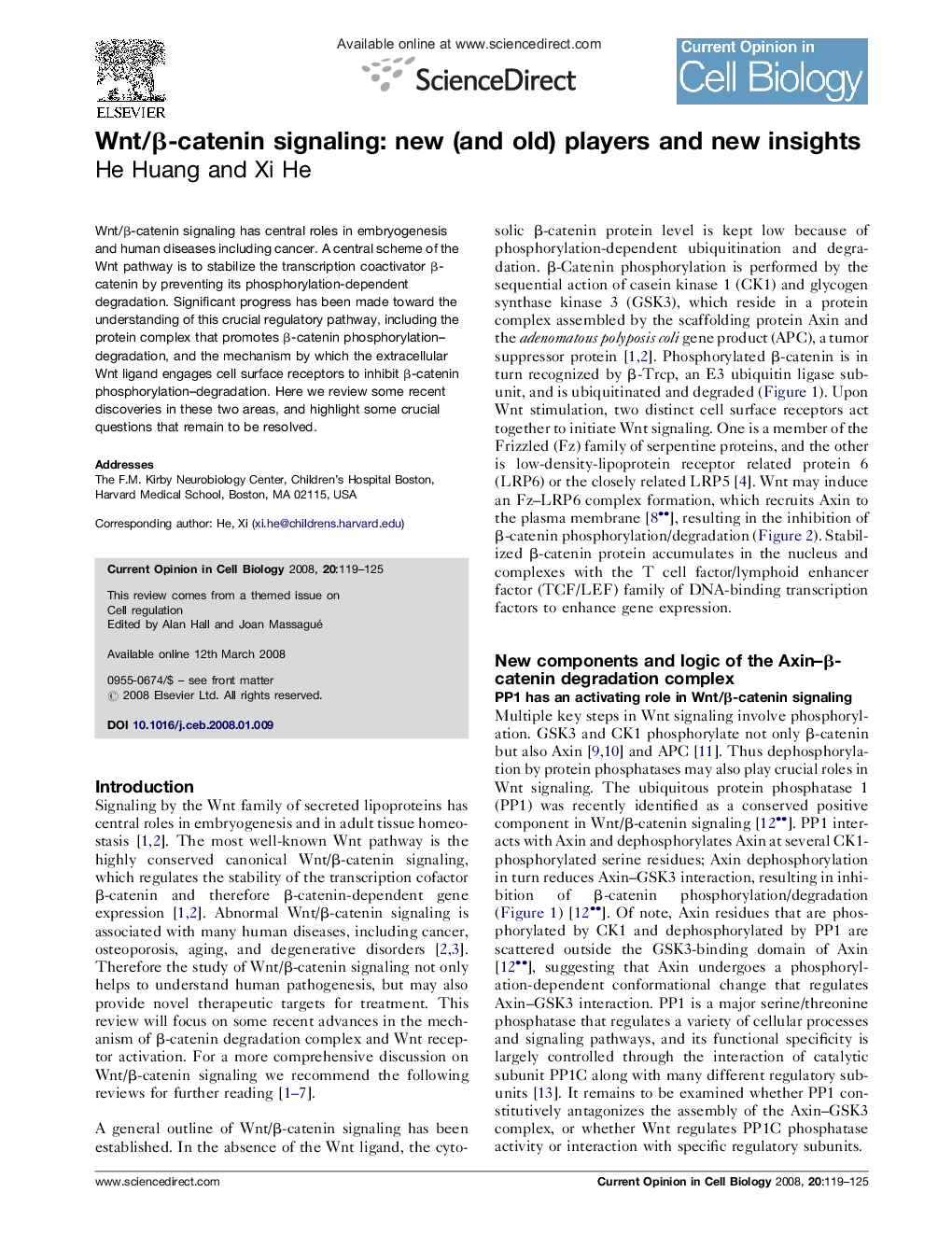| Article ID | Journal | Published Year | Pages | File Type |
|---|---|---|---|---|
| 10929416 | Current Opinion in Cell Biology | 2008 | 7 Pages |
Abstract
Wnt/β-catenin signaling has central roles in embryogenesis and human diseases including cancer. A central scheme of the Wnt pathway is to stabilize the transcription coactivator β-catenin by preventing its phosphorylation-dependent degradation. Significant progress has been made toward the understanding of this crucial regulatory pathway, including the protein complex that promotes β-catenin phosphorylation-degradation, and the mechanism by which the extracellular Wnt ligand engages cell surface receptors to inhibit β-catenin phosphorylation-degradation. Here we review some recent discoveries in these two areas, and highlight some crucial questions that remain to be resolved.
Related Topics
Life Sciences
Biochemistry, Genetics and Molecular Biology
Cell Biology
Authors
He Huang, Xi He,
